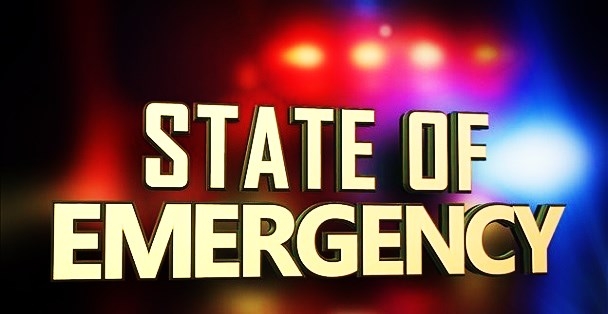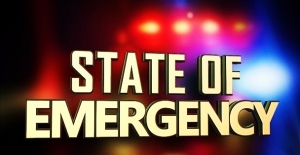State of Emergency: What Happens If It Is Declared in Georgia?
Unconfirmed reports say that in the coming days or even in the next few hours, the Government of Georgia might declare a state of emergency as part of a series of measures to limit the spread of COVID-19.
Citizens are wondering what a state of emergency actually means and what restrictions will be imposed throughout the country if it is declared, as well as how it will affect citizens' rights.
During a state of emergency or martial law, the President of Georgia shall have the right to restrict by decree the certain rights specified in the constitution.
Generally, a state of emergency is a situation of national danger or disaster in which a government suspends normal constitutional procedures in order to regain control.
It gives the government powers to limit some constitutionally-mandated freedoms during a pandemic, namely, the freedoms of movement, assembly, and the inviolability of the home.
In the case of war or mass disorder, infringement upon the territorial integrity of the country, coup d'etat, armed insurrection, ecological disasters, epidemics or in other cases, when state bodies are unable to normally exercise their Constitutional powers, the President of Georgia shall declare a state of emergency throughout the whole territory of the country or a certain part thereof and submit this decision to the Parliament within 48 hours for approval.
If Parliament does not approve the decision following a vote, it shall become null and void. Emergency powers shall only apply to the territory for which the state of emergency is declared.
The announcement of a state of emergency or martial law shall lead to the suspension of the revision of the Constitution until the cancellation of the state of emergency or martial law.
Declaration of a state of emergency allows the state to:
- In some cases, conscript citizens to help with efforts to manage the emergency;
- In others, to authorize qualified citizens to assist in emergency management efforts;
- Confiscate equipment and property that will assist in emergency management;
- Make goods and resources available for distribution to those areas impacted;
- Fix prices of goods and services;
- Impose a curfew on residents;
- Prohibit, or at least limit, travel to, from or within the areas impacted by the emergency;
- Establish emergency shelters;
- Enter any building without a warrant;
- Order residents to evacuate affected areas.
In case of the declaration of a state of emergency, considering specific circumstances, the supreme authorities of the executive branch of Georgia may, within their competence, comply with the following requirements of the law:
Strengthen the protection of public order;
Temporarily evacuate citizens from dangerous areas; in addition, it is essential to provide other temporary accommodation;
Introduce special regimes for entry and exit of citizens in affected areas;
If necessary, restrict the free movement of citizens and prohibit them to leave their place of residence without permission;
Temporarily confiscate firearms, cold weapons and bullets;
Prohibit the holding of meetings, rallies, street marches and demonstrations, as well as sporting and other mass events;
Make changes in the plans for production and supply of products of state-owned enterprises and organizations, as well as decide on other matters of their economic activity, establish a special mode of operation for public and private enterprises, institutions and organizations;
Use resources of state-owned enterprises, institutions and organizations in order to prevent and eliminate the effects of an emergency;
Prohibit the organization of strikes;
Introduce quarantine and carry out other compulsory sanitary-epidemic measures;
Establish control over the media in accordance with the legislation;
Introduce special rules for the use of communication means;
Restrict the movement of vehicles and inspect them;
Inspect documents at the places of mass assembly of citizens, and, where appropriate, arrange for personal examination of citizens, an inspection of their items and vehicles.
During natural or technogenic disasters or epidemics, Parliament shall be authorized to take decisions on the termination of the use of the Defense Forces.
A decision on revoking a state of emergency or martial law shall be adopted in accordance with the procedures established for declaring and approving a state of emergency or martial law.
By Ana Dumbadze












